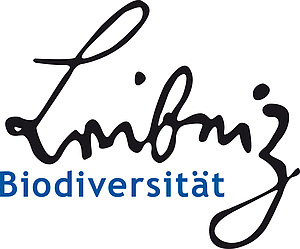Leibniz Research Networks
Leibniz Research Networks focus on a particular key topic or technology. They form a communicative platform where the participating institutes can exchange subject-based, methodological and technical expertise and develop it further. Leibniz Research Networks are set up by the Executive Board of the Leibniz Association at the request of the Leibniz Institutes.
ATB is involved in two research networks of the Leibniz Association.
Here we would like to briefly introduce these networks...
Leibniz Research Network 'Mathematical Modelling and Simulation (MMS)'

Modern mathematical modelling and simulation methods have become a fundamental resource for scientific and technological progress. Mathematical modelling and simulation is therefore a key methodological area of great relevance for the natural sciences and engineering and for economic, social, life and environmental sciences. As a consequence, many Leibniz Institutes invest in these methods. Methods from a wide range of mathematical fields are used (statistics, mathematical finance, optimisation/operations research, numerical methods for partial differential equations, mathematical image processing, etc.), to investigate problems on every conceivable temporal and spatial scale with widely differing levels of complexity (from an individual company to the entire global economy, from local environmental events to global climate models).
The common factor in all these methods is that they are based on mathematical principles. This means they are cross-sectional in nature and can generally be used outside of the context in question, to help solve problems in completely different branches of science. There is great potential here for effective utilisation. One of the key aims of this Leibniz Research Network MMS is therefore to systematically exploit this potential for effective use and synergies. An important question is which is the fastest, most suitable and error-free of the current mathematical research methods to use in each case – to ensure that the available software and hardware resources are used effectively and sustainably.
In environmental sciences (Leibniz section E, where ATB is part of), MMS is used in the field of climate and atmospheric research, e.g. in models for the statistical simulation of regional climate changes, in severl models for the simulation of dynamic processes in the atmosphere, in the simulation of chemical transport processes in the lower atmosphere, but also in the geosciences, in the modeling and simulation of the temporal change of deformation and Mass transport and the modeling of heat and mass transport in the subsoil. The network is coordinated by Weierstraß institute for Applied Analysis and Stochastics (WIAS)
Leibniz Research Network 'Green Nutrition - Healthy Society'
Under the present conditions of climatic and social changes and consequences, the transformation towards a healthy and sustainable food system requires cross-disciplinary solution strategies. The Leibniz Network Green Nutrition - Healthy Society comprises expertise from the areas of healthy nutrition, health, biodiversity, environment, climate change, food production and sustainable development as well as their social relevance. For us, a green diet is a physiologically optimized nutrition provided by resource-saving and sustainable food production, processing and distribution.
In addition to scientific exchange, the members of the network aim at identifying specific research needs on current issues in the field of healthy and sustainable nutrition; initiating interdisciplinary cooperation, far-sightedly promoting of young talent and careers; and establishing active exchange with political actors and regular transfer of knowledge in politics and the public.
Leibniz Biodiversity
The Leibniz Research Network Biodiversity (Leibniz Biodiversity) bundles and networks the expertise of 18 Leibniz institutions in the environmental, life, spatial, social and economic sciences. The scientists at the participating institutions record and explore the biological diversity of life and develop socially relevant solutions for the protection and sustainable use of biodiversity through interdisciplinary research. Access to genetic resources and equitable benefit sharing (ABS) are also addressed. Equally, the Leibniz Biodiversity members are committed to the transfer of information for politics and society in order to raise awareness of the progressive loss of biodiversity and to strengthen the overall appreciation of biodiversity in society.
10 Must-Knows from Biodiversity Science 2024: In the 10 Must-Knows from Biodiversity Science 2024, 64 scientists have further developed their well-founded and diverse findings and recommendations from the 10MustKnows22.
Contact ATB: Prof. Dr. Annette Prochnow

